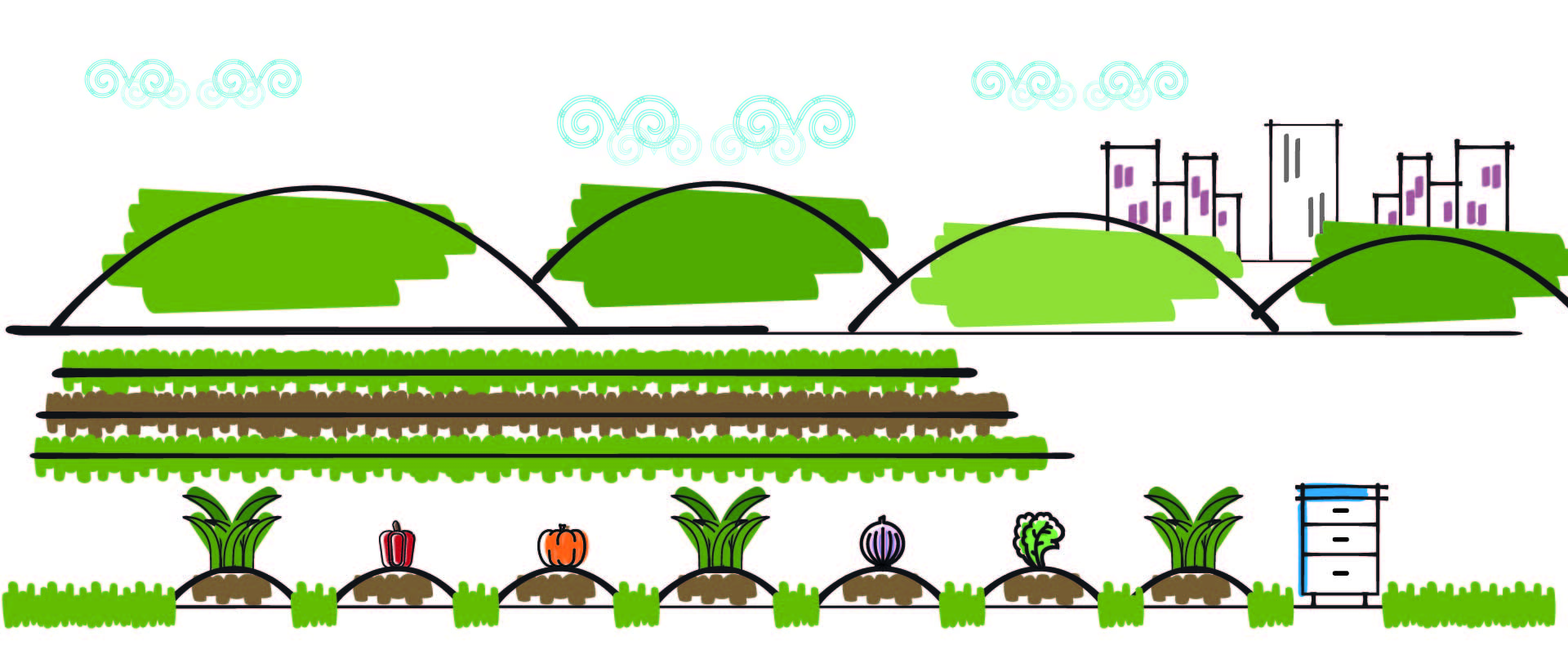Why this is a priority
In our region we benefit from a temperate climate and high proportion of arable land that enables year-round food production.
However, recent events have demonstrated the importance of
food security, with imports, exports and domestic
supply chains directly impacted by the COVID-19 pandemic and prices fluctuating significantly.

Food consumption emissions
Our food system makes up 18 per cent of our consumption
emissions in Auckland. Consumption emissions come from food production, transport, processing and disposal to landfill.
According to the World Resources Institute, globally, food loss and waste generates more than four times annual
greenhouse gas emissions than aviation. This is comparable to emissions from road transport.
Climate change affects food production
Climate change will affect food production with:
- longer periods of drought
- more intense storms and flooding
- increasing number of pests and diseases.
This is already happening around the world, affecting availability and affordability of imports.
A low-carbon, climate resilient local food system is based on a regenerative, circular economic model.
This approach:
- minimises or avoids synthetic fertilisers and pesticides
- eliminates food waste from landfills
- makes the most of surplus food to feed people, plants and animals.
As identified by our
rangatahi, we need to reconnect people of all ages to where our sustenance comes from - how it grows and how we can be more resilient when we understand this.
Importance of local food production
Local, sustainable food production can secure our food supply and reduce emissions. We need to restore, rejuvenate and replenish
mahinga kai – our soils and ecological systems that support the production and gathering of food.
Our ability to meet future demand faces many pressures. In addition to
climate impacts, we are seeing rapid population growth and a loss of productive soils from unsustainable farming methods and land development.
Preserving productive soil
Only one per cent of Auckland’s soils are considered Class 1 (elite) and suitable for vegetable production. These are mostly in the Pukekohe hub, which is under pressure from urban development.
Soils play a critical role in meeting our emissions targets as carbon is stored in soils. The more soil we lose, the less chance we have of meeting our emissions targets.
Read about
roles and partnerships to deliver our actions and the
indicators that track our progress for the food priority.
